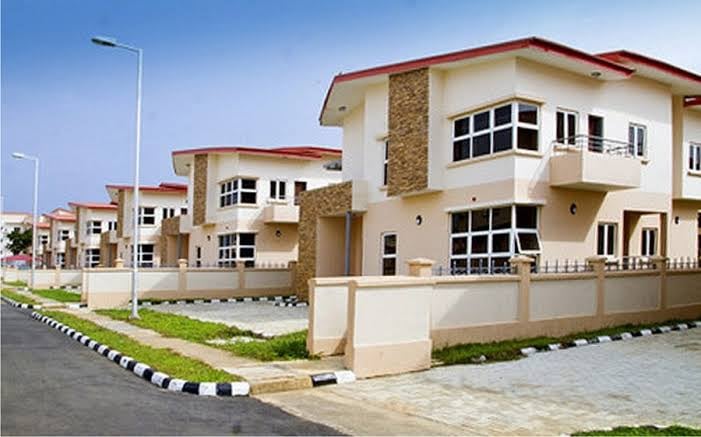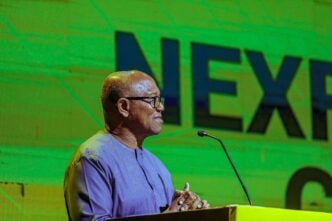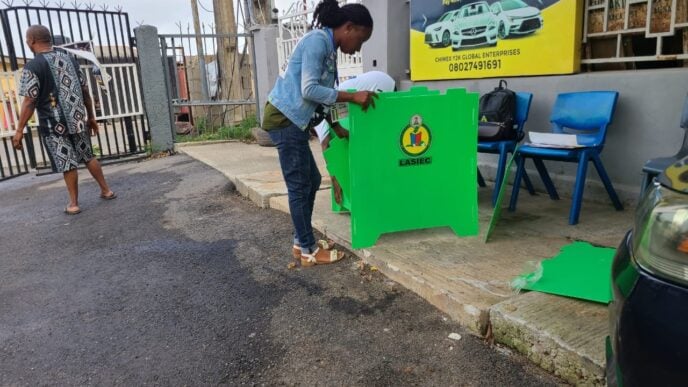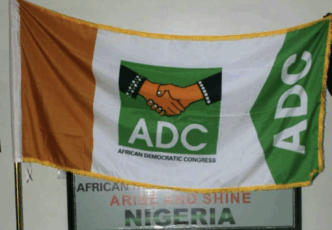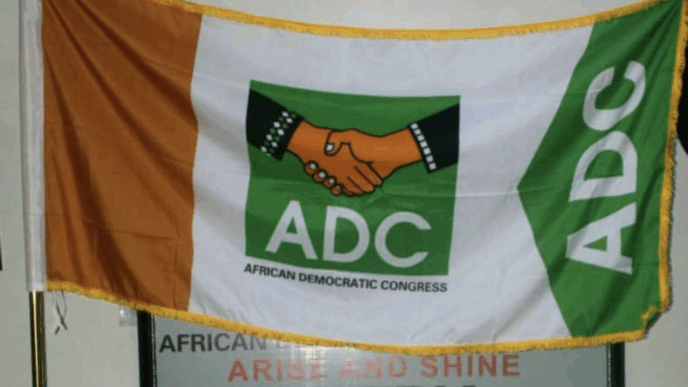BY FOLORUNSO FATAI ADISA
A concerned Nigerian, Scott Iguma, spoke. They struck. He had taken to social media to raise alarm over a real estate company in Lagos that, according to numerous complaints, had collected large sums of money from buyers without allocating land. His exposé quickly gained traction, echoing the silent frustrations of many Nigerians. But the response he received was chilling. Iguma was arrested, reportedly on the orders of the firm’s powerful proprietor, and claimed he was assaulted and humiliated by police officers. No official statement was released. No investigation launched. No legal process followed. Just silence, cuffs, and intimidation.
That image, of a man dragged and punished for daring to speak, captures the essence of a crisis festering beneath the surface of Nigeria’s booming real estate sector. Worth an estimated ₦16.42 trillion as of Q1 2025, according to the April 2025 NBS Nairalytics report, the industry has overtaken trade as the leading contributor to the Nigerian economy. One would assume this rise would bring a corresponding improvement in housing access, affordability, and urban infrastructure. But the truth is more damning. The growth is not reflective of equity or efficiency; it is a facade, a surge built on inflated prices, speculative investments, and a vast field of ethical rot.
In response to my earlier piece, “Castles in the Air: The Fraudulent Theatre of Nigerian Real Estate,” published in TheCable, I received a torrent of messages from aggrieved citizens. Many shared harrowing tales of life savings poured into phantom estates. Some narrowly escaped similar fates, walking away just before the trap snapped shut. Across these testimonies, a pattern emerged, one of betrayal, frustration, and helplessness. Nigerians are trapped in a system where the dream of homeownership has become a marketplace for predators who dress like professionals and prey on desperation.
Advertisement
The tragedy doesn’t end with consumers. There is a quiet war within the real estate industry itself. Some members of the Estate Surveyors and Valuers Registration Board of Nigeria (ESVARBON) and the Nigerian Institution of Estate Surveyors and Valuers (NIESV) have openly accused the Real Estate Developers Association of Nigeria (REDAN) of undermining industry standards. REDAN, though officially recognised by the government, is perceived by insiders as a politically connected bloc of moneyed developers who operate with little to no oversight. It’s not merely a professional association, it is an unchecked lobby. These internal feuds only further erode public trust and expose a deeper dysfunction: the question of who, if anyone, actually regulates the sector.
On paper, the Nigerian real estate space is littered with agencies, boards, and commissions. The federal ministry of housing and urban development is tasked with setting national housing policies. ESVARBON regulates the professional practice of estate surveyors and valuers, while NIESV serves as the ethical gatekeeper of the profession. REDAN, meanwhile, represents developers but focuses more on advocacy than discipline. In Lagos, the Lagos State Real Estate Regulatory Authority (LASRERA) licenses agents, handles complaints, and ensures compliance.
Across other states, town planning offices and urban development authorities oversee zoning, land use, and building permits, often amid corruption and red tape. A promising legislative effort, the Real Estate Regulatory Council of Nigeria (RERCON) Bill, was passed by the senate to unify regulation, enforce the National Building Code, and licence developers nationwide. But it remains in legislative limbo. Until it becomes law and is properly implemented, the regulatory landscape remains fragmented and vulnerable to manipulation.
Advertisement
And so the chaos continues. Many developers operate without licences or any formal training. Fraudulent practices, double sales, fake titles, off-plan schemes that vanish into thin air, are rampant. The menace of omo-onile remains unchecked; these land touts intimidate buyers, resell land repeatedly, and impose extortionate levies with impunity. Meanwhile, many developers circumvent bureaucratic bottlenecks through backdoor dealings, bribes, padded levies, and ghost inspections. Land disputes drag on in courts for decades, worsened by overlapping claims and flawed documentation. In this jungle, law is not a shield but a mirage.
All of these are compounded by harsh economic realities. Rising inflation continues to push up the cost of building materials. Mortgage access is limited to a small elite. Poor roads, erratic power supply, and inadequate water infrastructure further discourage genuine long-term investment. And yet, the sector continues to expand, not in service of the masses, but in favour of a few. Developers amass billions through unregulated sales, marketing overpriced plots and unfinished luxury units to a desperate population. Their marketers, often underpaid and overworked, prowl junctions and spam inboxes with fantastical offers of paradise estates that never see the light of day.
The consequences are severe. Away from the financial losses, trust is eroding. Citizens are growing more cynical. Investors are becoming wary. Most dangerously, the line between justice and status is hardening. When whistleblowers like Iguma are silenced, it sends a clear message: in Nigeria, it is safer to suffer in silence than to speak the truth.
This cannot go on. Reform is urgent. The government must prioritise the enactment and enforcement of the RERCON Bill. A centralised digital land registry should be introduced to authenticate land titles and reduce fraud. Licensing of developers and agents must be made mandatory, with stringent penalties, including public blacklisting, for defaulters. The holding of client deposits without escrow protections should be banned. Public awareness campaigns must be rolled out to educate citizens on due diligence, documentation, and red flags in property dealings.
Advertisement
The government must reclaim its role as protector, not bystander. It is, after all, the mother of all, entrusted with the care, safety, and justice of its people. But in real estate, that mother has been sleeping, indifferent at best, negligent at worst. The Ministry of Housing must shake off its lethargy. ESVARBON must not only exist but act. NIESV must uphold its codes with courage, not convenience. REDAN must do more than advocacy, it must prove that it has the will to self-regulate. Anything less is complicity.
Nigeria’s real estate sector should not be a graveyard of dreams. It should be a platform for dignity, stability, and growth. Homeownership is more than a purchase, it is a promise. A place of belonging. A slice of the nation carved out for the citizens. To weaponise that promise, to exploit it for gain, is to strip people of hope and trust.
We owe it to the millions yearning for a place to call home. And we owe it, uncompromisingly, to the truth.
Folorunso Fatai Adisa is a writer, communication specialist, and media scholar. He holds a master’s degree in media and communication from the University of Strathclyde, Glasgow. He writes from the United Kingdom. He can be contacted via [email protected]
Advertisement
Views expressed by contributors are strictly personal and not of TheCable.
